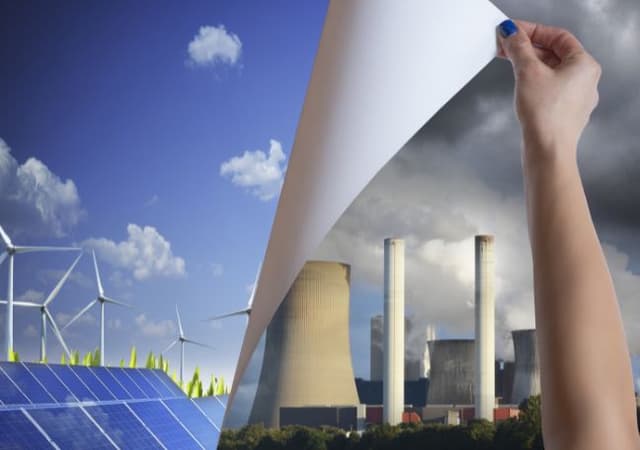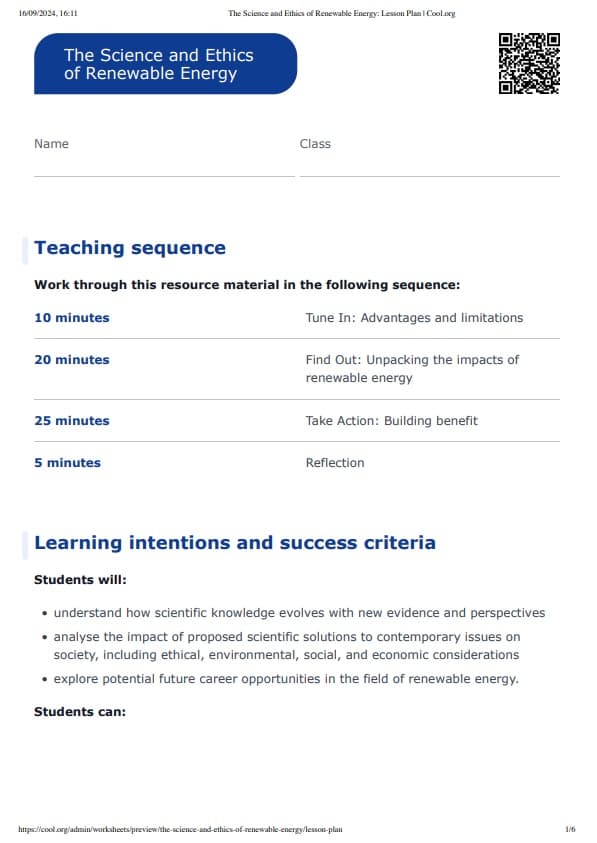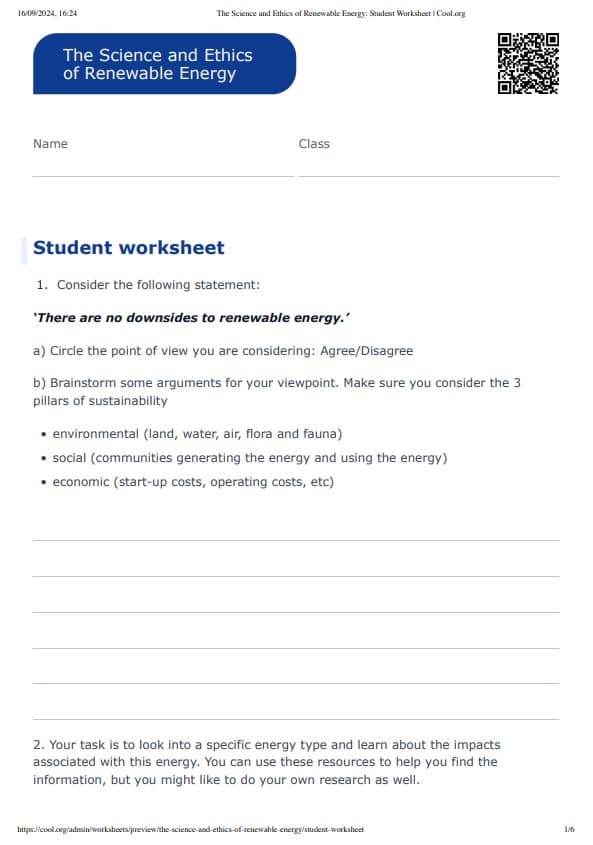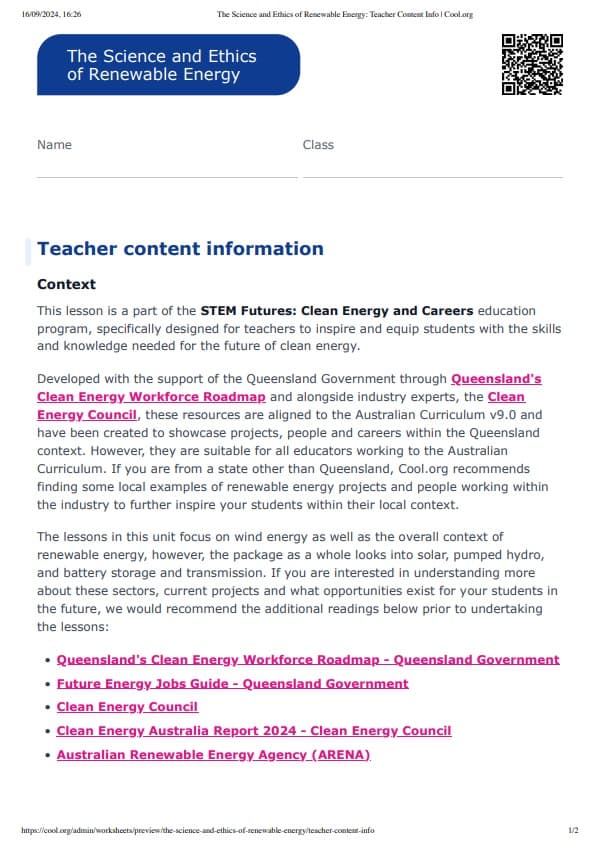Learning intentions:
Students will...
- understand how scientific knowledge evolves with new evidence and perspectives
- analyse the impact of proposed scientific solutions to contemporary issues on society, including ethical, environmental, social, and economic considerations
- explore potential future career opportunities in the field of renewable energy.
Success criteria:
Students can...
- explain how new evidence or perspectives can alter scientific knowledge, using examples related to climate change and fossil fuels
- examine the ethical, environmental, social, and economic implications of renewable energy projects, including the role of cross-cultural partnerships and First Nations land management techniques.



